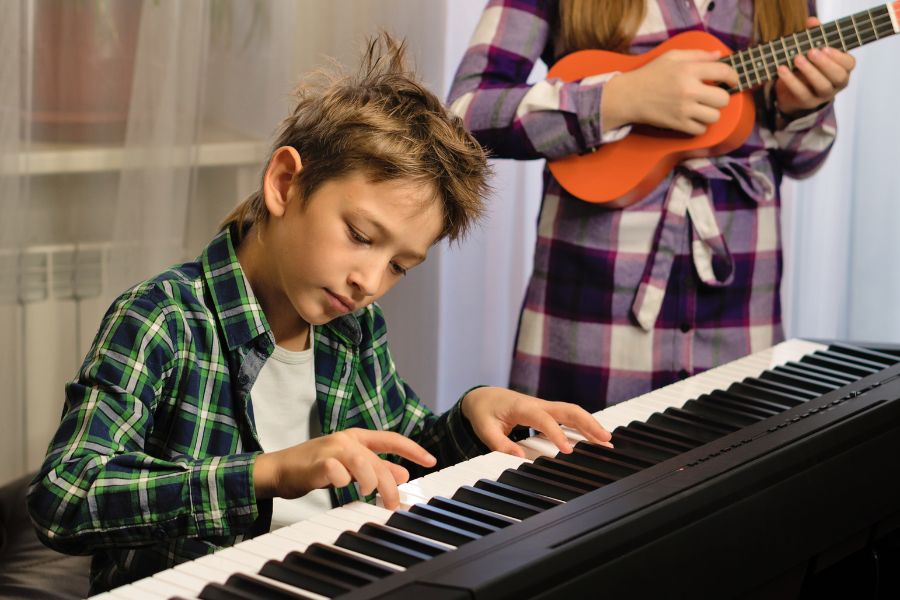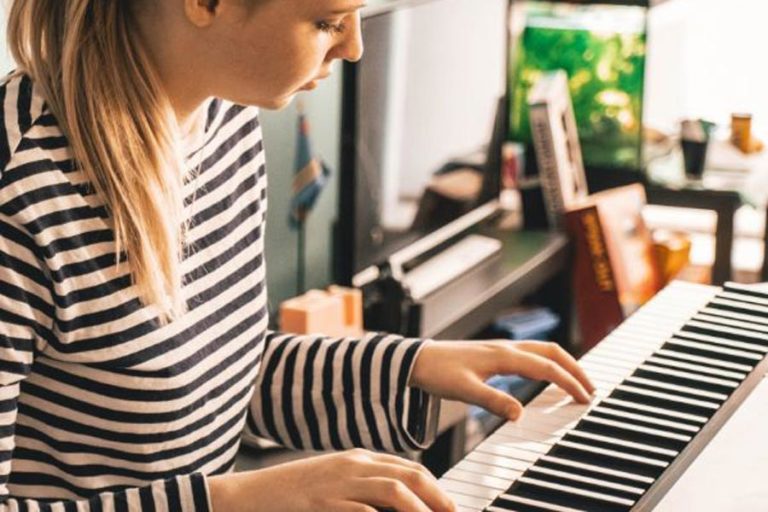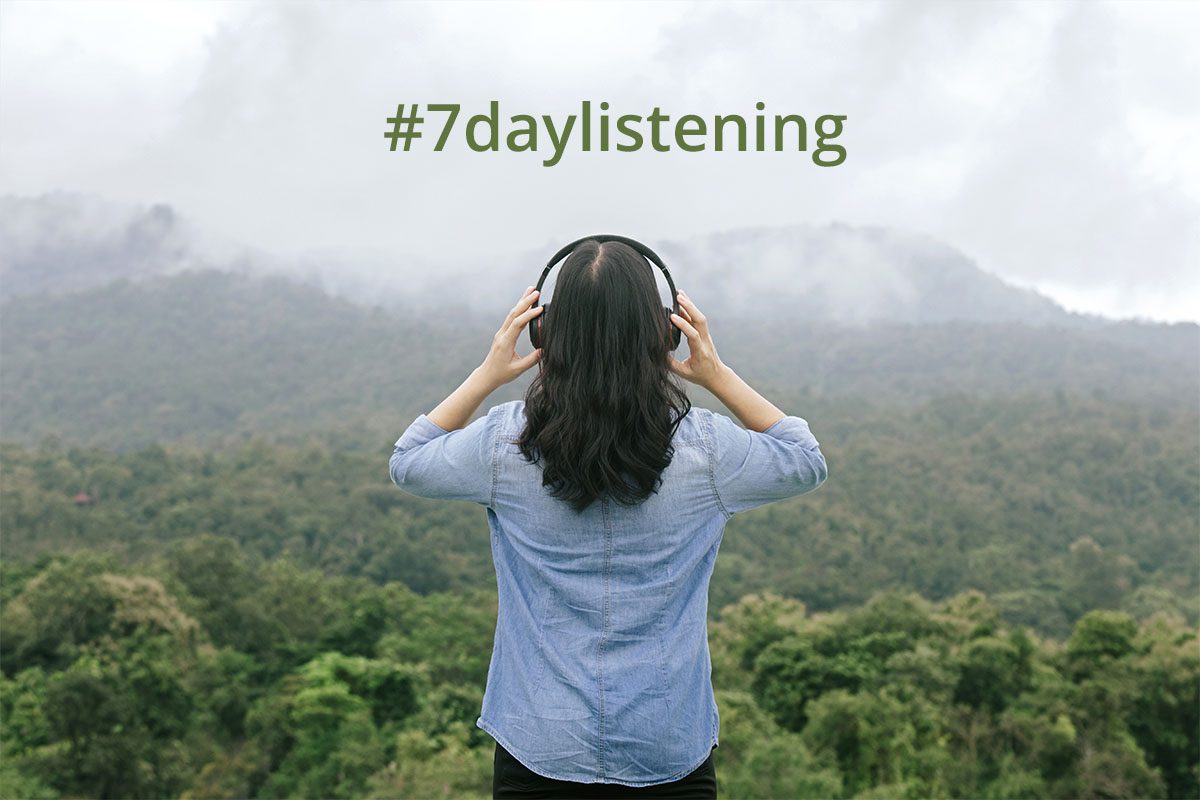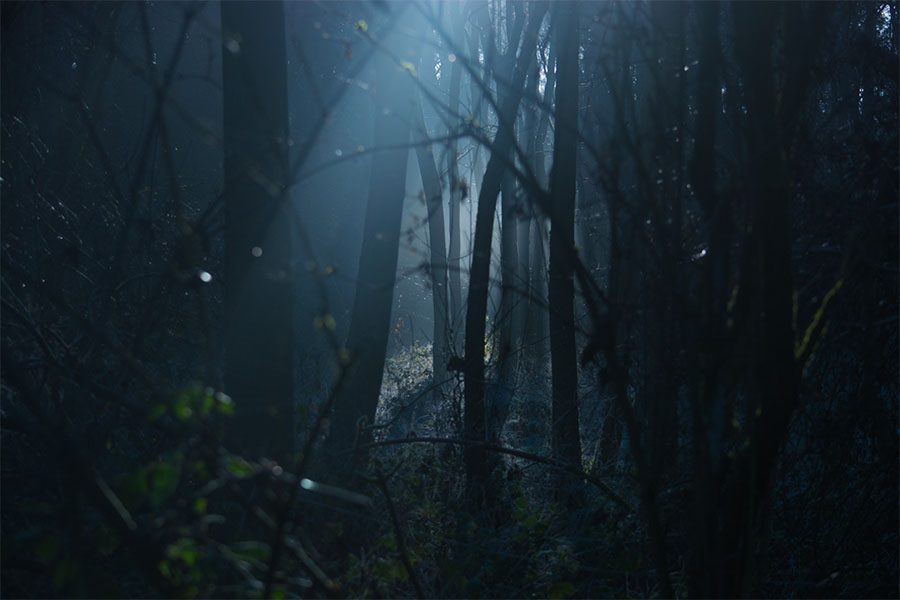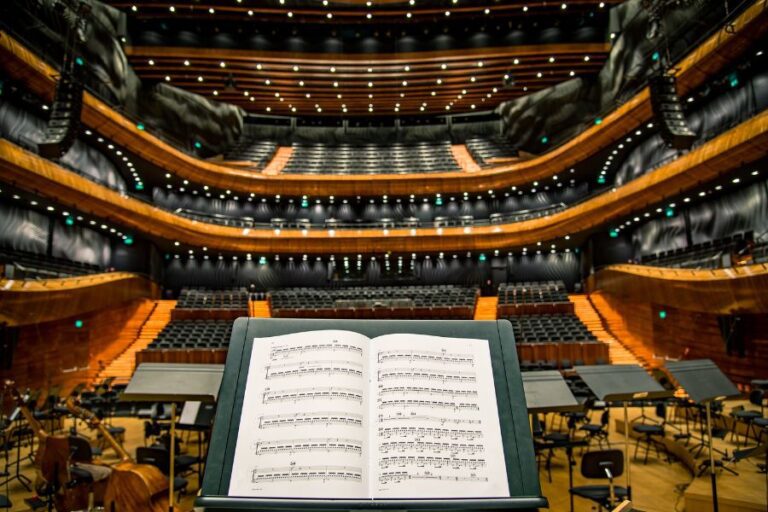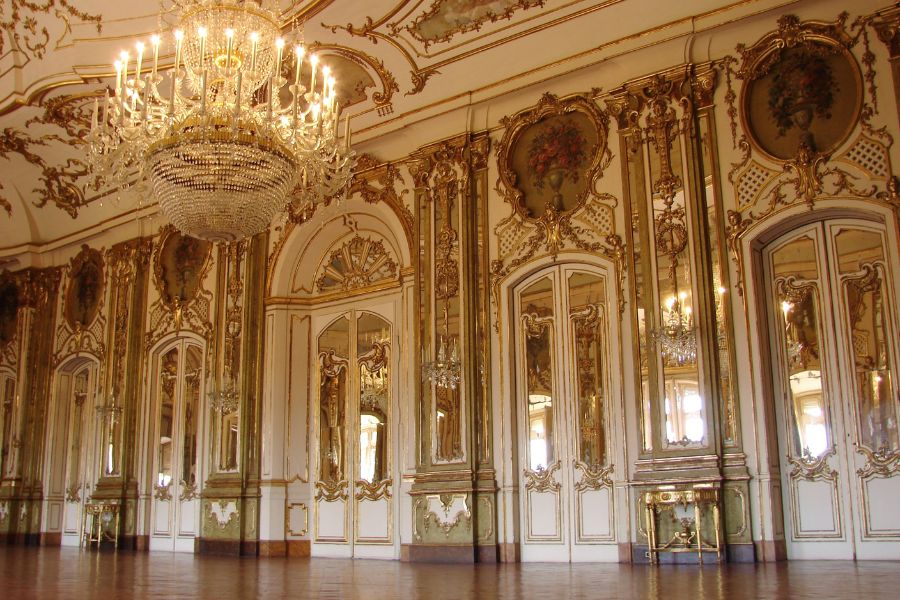I am delighted to introduce Professor Martin Fautley as our guest writer. Martin is an esteemed academic in the field of creativity in the classroom and music assessment and here he shares his thoughts on the importance of young people having the opportunity to create music:
Guest Post by Professor Martin Fautley
In this blog entry I am writing about some personal thoughts on the matter of composing music in the classroom. I have been re-reading a number of John Paynter’s seminal writings recently, and he has said many of the things I think are important to note regarding composing in school classrooms. In this piece I will try to explain why I think this, and why, twenty-five years on, I feel they are still relevant today.
Back at the turn of this century the music education academic, researcher, and teacher John Paynter (1931 – 2010) wrote an article entitled “making progress with composing”. I think it is worth quoting the introduction in full at the outset, and so here it is:
Paynter, 2000 p.5
Although it is widely acknowledged that composition has a part to play in general musical education, some critics have argued that its place in the school curriculum is not justified by the results. John Paynter finds the evidence still on the whole encouraging and suggests that, where there are shortcomings, these should be seen, not as criticism of classroom composing, but as indications of uncertainty about how to help pupils make progress – a dilemma which, perhaps, reflects lack of conviction about the value of creativity in a curriculum based upon a theory of knowledge and progression more helpful to other subjects than it is to the arts in education. (Paynter, 2000 p.5).
The reason for my citing this in full is that I still come across people saying and writing disparaging things about the place and role of composing music in the classroom. When they do, I am reminded of the things that Paynter – himself a firm advocate of classroom composing – wrote. Therefore I’d like to try and unpick some of the issues associated with classroom composing, and discuss why I think it is important, and should be central to thinking about teaching and learning in music.
The first thing I have come to realise lies in direct opposition to a lot of the things I read on social media and in some printed publications. This is the argument that runs along the lines of “children can’t be creative until they have accumulated a lot of domain-specific knowledge”; in other words until they know ‘all about’ music (whatever that means!) they can’t compose. Twaddle, I say! I am now firmly of the view that the question we should be asking is not “how much do children need to know before they can start composing”, but rather “how little do children need to be taught before they can start composing”. Now, that may sound counter-intuitive, but let me explain.
One of the unfortunate side-effects of the knowledge vs skills argument in education is that declarative knowledge has often been privileged. Paynter recognised this in his article when he said this:
…there is pressure upon teachers to produce verifiable evidence of progress. If, to do that, it becomes necessary to compromise by making important whatever is easiest to assess/evaluate rather than assessing/evaluating those things which are truly important to a subject, then students’ achievements may be trivialised. (Paynter op cit, p5)
This has become the case in some schools, and assessment has become, or taken the place of learning. Assessment of composing in the classroom is a whole other issue, and beyond the scope of this current piece, but is something I have already written about elsewhere, and is doubtless a topic I will continue to return to frequently!
However, obviously for children and young people to be composing music, they do need some knowledge, so the question is, how little? Well, clearly enough to be able to compose the music in question! Paynter, in another article, observed:
Composition (I prefer to call it ‘making up music’) is the most natural thing in the world. The only stimulus it requires is the opportunity and encouragement to do it. It is quite simply through ‘doing the art’ that not only do we learn about the nature of music itself – thereby achieving understanding of what more experienced musicians have been able to do – but also we use and develop, in many subtle ways, our powers of judgement, the confidence to take decisions, and the courage to stand by those decisions. (Paynter, 2002 p.224)
Paynter clarifies why he feels that composing is important:
Across the ages most of the world’s music has been made up – invented and performed – by musically untutored people. There are still people like that in every culture, and they are still making music. It may be that most of us have come to think of music as something to be listened to – in the same way that we think of paintings as objects to be looked at – yet, in essence, both music and paintings are what human beings make: it is the act of making that justifies the art. (Paynter, 2002 p.219)
This, I feel, is important. In the same way that we are not going to tell young children that they cannot paint pictures of their pet dog, ones that looks like a blob with a stick in each corner for legs, until they have mastered perspective and colour theory, then we should not be telling the same children they cannot make up songs about their pet dog until they have mastered scales and harmony. For me, the essential difference is that parents can happily display the picture of the family dog on the fridge, but they have no easy way of capturing and ‘displaying’ the spontaneous songs of children.
For children at KS2 and KS3, the musical resources of classroom instruments are in and of themselves sufficient to make good progress with composing. To think about this, we need to turn to another author, namely Margaret Boden, and her work on creativity. What Boden does is to situate creativity into two specific types, these are everyday creativity, which can include the composing activities of children and young people in classrooms, and then creativity which impacts a much wider sphere, including the production of musical works of importance. In her own words, she says it is important to:
…make a distinction between “psychological” creativity and “historical” creativity. (P-creativity and H-creativity, for short.) P-creativity involves coming up with a surprising, valuable idea that’s new to the person who comes up with it. It doesn’t matter how many people have had that idea before. But if a new idea is H-creative, that means that (so far as we know) no-one else has had it before: it has arisen for the first time in human history (Boden, 1990 p.2).
This is helpful for considering composing in the classroom. A simple example of this is to be observed when a young child encounters a tuned diatonic percussion instrument such as a xylophone or glockenspiel. They will often begin their investigation of the instrument by sweeping the beaters up and down the note-bars. Such patterning activities will have been heard by the teacher hundreds of times, and yet will be completely new for the child. Invoking Boden’s notion of P-creativity means we are able to recognise this as a creative act in its own right. Recognising originality in the p-creative sense is important for the classroom, as although as adults we have heard the resultant compositions in similar formats many times over, nonetheless for the children concerned they are new and original, and should be treated as such.
Boden’s labelling scheme means that significant musical compositional outputs can be recognised as H-creative if they have a lasting effect, whether this is a song by Taylor Swift, or whoever else. This distinction between creative acts is helpful for our purposes, as it enables teachers, educators, composers, and learners themselves to think about the ways in which their compositions can be considered as being part of a spectrum of understandings and classifications of what they are doing in their own personal musical journeys. Oscar Odena (2018 p.8) provides a useful school-based example of this type of thinking:
For instance, a pop song by a group of students aged 12 may do poorly if compared with the song that is at number 1 in the pop charts, but for the students the process of composing it may have been an outstanding creative achievement in its own right.
This is helpful, as we listen to the compositional products of the children we teach, we can think how they fit into the spectrum of creativity that Boden outlined.
But let me finish as I began, with the words of John Paynter. He finished his article by writing:
…it is what can be learned from musical activity – composing and performing – that makes most sense of the subject as an element of the school curriculum. Music-making offers students a chance to encounter a kind of knowledge different from that which characterises the majority of curriculum subjects. (Paynter, 2000 p.28)
From my own research work in many, many schools, it is the importance of this that I feel we need to keep hold of. Music is, obviously, musical, and we owe it to our children and young people to ensure that we don’t just teach them about music, we let them really get to grips with creating their own. Music is a great subject to teach, and whilst we know it is not easy, nonetheless we need to do our best to help the learners really grasp it. After all, we are well into the 21st century now!
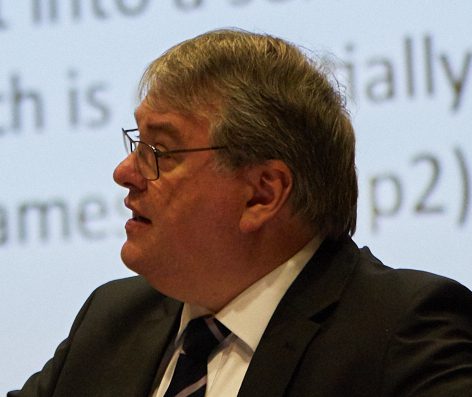
About Professor Martin Fautley
After many years as a classroom music teacher, Martin undertook full-time PhD research in the education and music faculties at Cambridge University, investigating teaching, learning, and assessment of classroom composing. His main areas of research are assessment in music education, classroom composing and creativity, policy in the English education system, and understandings of musical learning and progression. He is the author of ten books, over sixty journal articles, book chapters, and academic research papers, and is co-editor of the British Journal of Music Education.
In 2024 Martin was awarded the ISM ‘Distinguished Musician Award’ in recognition of his ‘outstanding contribution to musical life in the UK’.
